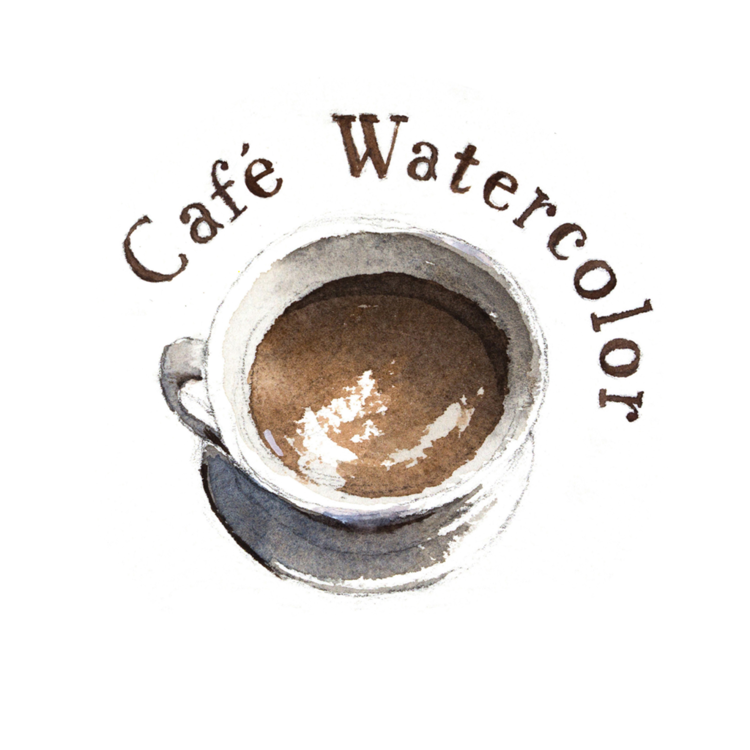Stack of "practice"
For this week I want to extend from last week's blog a little and talk about how do you improve more efficiently.
- Practice
This sounds elementary. I am sure you know, but I still like to put this one on top of the list. Practice often, and consistently is vital to improve. DVDs, workshops and lessons will not help you as much if you don't practice what you learn. Watercolor, like any other painting, is a skill. You cannot be good at a skill by watching other people do it. Doesn't matter how much you've seen and how well you can analyze a painting. You may gain knowledge about composition, color design and etc. But "knowing it" and "doing it" are two different things. I can show you how to paint a car, a person, or a tree a hundred times. But if you don't start doing it yourself, you will not be good at it. NBA players don't just sit there and watch Michael Jordan play basketball all day long and win the game. They practice, practice and practice. And if you try to mimic what a seasoned artists do in the workshop or tutorial, you might be frustrated and wondering why does it seem so easy for them but not for you. I can tell you why. Every brushstroke and every shape are mileage of an artist. Behind the painting skill of an experienced artist is countless hours of practice. Have a set time to paint each week. I try to do two to three paintings a week. Plus the hours I invested back in my college years have also contributed to my paintings now. We live in a world where we see successful people everyday. Things go viral, artist become famous. But it is important to know the amount of time successful artists spent practicing before they made it!
- Start small
If you just get started, I suggest you to start small. Do not go over 12"x16". I might even suggest you paint in 9"x12". The reason is that large painting takes more energy and experience in watercolor. Start on smaller scale let you paint a whole painting with greater control and you will be able to finish it sooner. When you are able to paint comfortabily on smaller paper, then move on to a bigger size. I personally don't paint bigger than 18"x24", and I rarely paint in that size. To paint in a bigger size paper you need more planning and approach it differently. When you just start, paint smaller. Don't be afraid to paint two small pictures in one paper. What you can do is take one 9"x"12" paper and masking tape the middle, so you can do two 5"x9" paintings. Start small also forces you not to focus on detail. I cannot emphasize how important it is to focus on the big picture. You can be easily mesmerized by the beautiful details in the nature, but you are not a camera. Focus on painting big picture in small format.
- Start simple
Don't start painting an aerial cityscape when you are just starting to paint. You may be passionate and want to be known for painting complicated scene. And I am not here to stop you. But if you just start to learn watercolor. Start with simple scenery and/or objects. And if you think about it, this goes along what watercolor is about- Less is More. Simple scenery can be very powerful if done well. I am often attracted by simple subjects. And as your skill develops, your idea of simple will grow with it. What use to be complicated for you can become simple once you get a hang of it and are able to simplify it. So start small, and start simple.
- Limited pallet
Color is a whole different topic on it's own, but I just want to touch base on it. Don't use too many colors when you just started to paint. Start with limited pallet. My suggestion is start your pallet with the following colors:
Cobalt Blue, Burnt Umber, Burnt Sienna, Yellow Ocher, and maybe some Cadmium Red and Orange.
I have more colors in my pallet, but that's because I know what they are for. Imagine a kitchen with hundreds of spices and tens of ingredients. A master chef will have no problem to come out with amazing dishes with those. But an inexperienced cook will be very confused. Now take away everything but leave him 5 spices and 4 ingredients. That's probably more manageable. Set boundaries for yourself will actually help you improve. Build your skill on top of what you have learned and mastered is important.
- Do not obsess over the finish product
You want to have good finish painting. You want to have something to put on our Facebook or Instagram to get some Likes. And so do I. But resist the desire to paint a master piece. Treat every painting as a practice. Tell yourself that if this one fails, you can paint another one! If you pressure yourself to paint a finish product every time, you are killing your self-confidence! Because you simply can't! Just paint, don't think about if it will turn out well. If you end up with a good painting, great! If not, start another one. No such thing as waste of time when you paint, you always gain experience and that's what matters here!
A skill set is not easy to acquire. Unlike knowledge and information, which you can pretty much Google it and obtain it in couple minutes. This is why being an artist is not easy, but it is also very rewarding to see when your hard work pays off.

